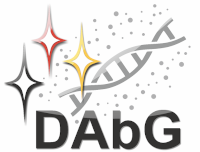Speaker
Description
The terrestrial deep subsurface is a vast and enduring habitat, representing one of Earth's most extensive and consistent ecosystems. Microorganisms thriving within the deep biosphere are pivotal in maintaining the planet's biodiversity and represent analogs for the search for life in extraterrestrial settings. However, our understanding of microbial colonization and persistence in Earth’s terrestrial subsurface systems, particularly in igneous rocks like granite, remains limited. Unlike sedimentary rocks that form on the surface, granite systems lack autochthonously produced organics. Given this limitation, it remains unclear whether subsurface communities in granite receive photosynthetically produced carbon through transport along pore space and fractures or in situ-produced chemoautotrophic carbon.
This study aims to characterize a deep regional biosphere in Chile by sampling granite rock cores from three different sites, encompassing a climate gradient spanning from arid conditions in the north to humid conditions in the south. High-throughput DNA sequencing, combined with geochemical and mineralogical analysis of the samples, unveils the biodiversity of the deep biosphere at different depths.
The findings reveal a diverse microbial community in deep granites predominantly composed of organisms belonging to the phyla Proteobacteria, Actinobacteria, and Firmicutes. Several Amplicon Sequence Variants (ASVs) exhibit affiliations with iron cycling and heavy metal tolerant organisms (e.g., Aquabacterium sp., Pseudomonas stutzeri, uncultured Janthinobacterium sp.), indicating a highly specialized subsurface community experiencing significant selective pressure and remaining largely unaffected by ongoing surface processes.
Our study underpins the adaptability and resilience of deep subsurface communities colonizing the nutrient-limited underground. Future metagenomic analyses of our samples will further explore the functional potentials and, unravel how life might persist and adapt in extreme and nutrient-limited subsurface habitats on Earth and beyond. The outcome could enhance our understanding of the habitability of other celestial bodies and help to guide the direction of future astrobiology research.

